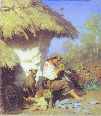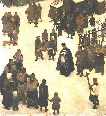
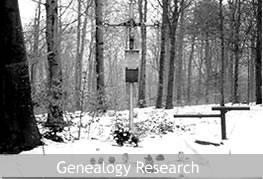
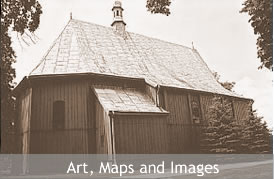
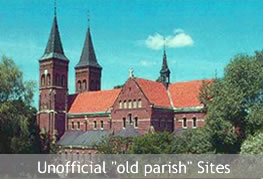
A collection of
melodies, in the MIDI format friendly to the internet. No actual musical
instruments were harmed in the production of this music. It's all done with smoke and mirrors.
Just click a song title and listen.
-
Polka
- Barbuska (Barbara) Polka
- Barbuska (Barbara) Polka - 2
- Beer Barrel Polka / Skoda Lasky
- Clarinet Polka / Dziadek Polka
- Clarinet Polka - 2 Goral Polka
- Hej, wy Chlopcy Krakowiacy
- Helena Polka
- Hupaj Siupaj
- Iskiereczka Ognia Krakowiak
- Julida Polka
- O Polnocy Sie Zjawili
- Polka Medley
- Puka Jasiu
- Siwy Kon
- "Too Fat" Polka
- Zegnal Goral Polka (Bright Star)
Anthems
- Gaude Mater Polonia
- Serdeczna Matko (Beloved Mother)
- Polish Anthem Polish Anthem (Solemn)
- Polish Anthem (Light)
Koledy/Carols
- Ach Ubogi Zlobie
- Bog Sie Rodzi
- Bog Sie Rodzi - 2
- Dzisiaj w Betlejem
- Dzisiaj w Betlejem (Jazz)
- Gdy Sie Chrystus Rodzi
- Jam Jest Dudka
- Lulajze Jezuniu
- Przy Onej Gorze
- Przybiezeli do Betlejem
- Przybiezeli do Betlejem (Guitar)
- W Zlobie Lezy
- Wsrod Nocnej Ciszy
- Z Narodzenia Pana
Oberek
- Krakowiak
- Oberek Medley
- Oberek Zywiecki
- Oj, Nasza Kasia
- Siwa Brodka
- Swir Swir
- Zakochany Franus Oberek
Chopin
- Opus 6, 1
- Opus 10, 3
- Prelude 20
- Opus 28, 2 The Polish Dance
- Opus 66 - Fantaisie
- Polonaise - Etude 12
- Polonaise - Opus 40
- Polonaise - Opus 53
Walc/Waltz - Blue Skirt Waltz (Czerwone Sukienka)
- Blue Skirt Waltz - 2 Bozena Walc
- Czyja to Dziewczyna
- Czyja to Dziewczyna - 2
- Czy Chcialaby Pani Felicia Walc
- Pytala Sie Pani Pytala Sie Pani - 2
- Ges Woda Gorale's Lament
(Goralu, Czy Ci Nie Zal) - How Swiftly Time Flies
(Jak Szybko Mijaja Chwile) - Juz Miesiac Zaszedl (Laura i Filon)
- Wishing Well Waltz (Gleboka Studzienka)
- Gdybym Mial Gitare
- Szla Dzieweczka Do Laseczka
- Morning Glow Waltz
- Z nad Wisly
Kliknij na zdjęcie aby zobaczyć powiększenie:
Click on the picture to view an enlarged image:
 |
|||
 |
 |
 |
 |
Editor's Notes: The music selections are the results of my tastes and which rendition sounded the best to my ear. Several versions of many the above melodies can be found on the internet. Some rejected versions were frankly terrible, failing to keep the beat or using the wrong instruments.
"Gaude Mater Polonia" and "Serdeczna Matko" could be classified as religious hymns rather than anthems. However, "Gaude Mater Polonia" served as the Polish anthem in the 17th and 18th Centuries and "Serdeczna Matko" became a substitute "anthem" during the Partition years in the 19th Century when Poles were forbidden to sing patriotic or nationalistic songs. Have you noticed that Poles have always thought of Poland as their motherland?"Barka" is included because it was a favorite of the late Pope John Paul II.Some of the above melodies are not truly Polish in origin. "Barbuska Polka" is questionable. "Bozena Walc" has a Polish name, but may be of Czech origin. "Too Fat Polka" is based on a Czech tune called "Village Tavern Polka" and "Beer Barrel Polka" started out as "Skoda Lasky" by Czech composer Jaromir Vejvoda. "Who Stole the Kiszka" was borrowed from a Ukrainian folk dance by a Polish band leader in Connecticut in the 1950s. "Frailach" is obviously Jewish, but they were Poles as well. "Kaczuszki" was chosen as a humorous selection and because of its popularity at Polish weddings, but alas it's probably Austrian. "Blue Skirt Waltz" (originally "Red Dress Waltz") is really American with a Slovenian style provided by Frank Yankovic. The "Clarinet Polka" sounds American, but it was written in Zamosc by Karol Namyslowski as the "Dziadek Polka". So what? I like them all. And lastly, Bobby Vinton was added because I easily succumb to pressure and extortion.
Extra special thanks to Grace Skowron, Gene Mikrut, and Joe Oberaitis for their helpful collaboration and valuable input and Stan Konefal for his tasteful sequencing. I myself have no musical talent. I merely seek to preserve a bit of Poland's outstanding musical contributions for everyone.



